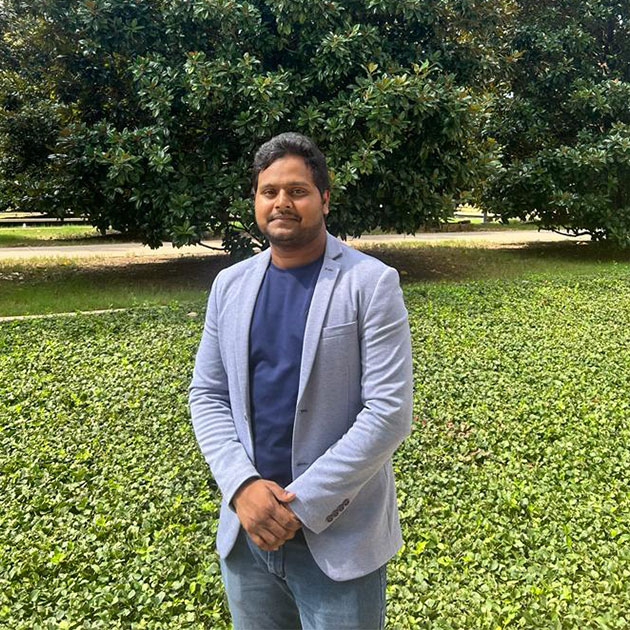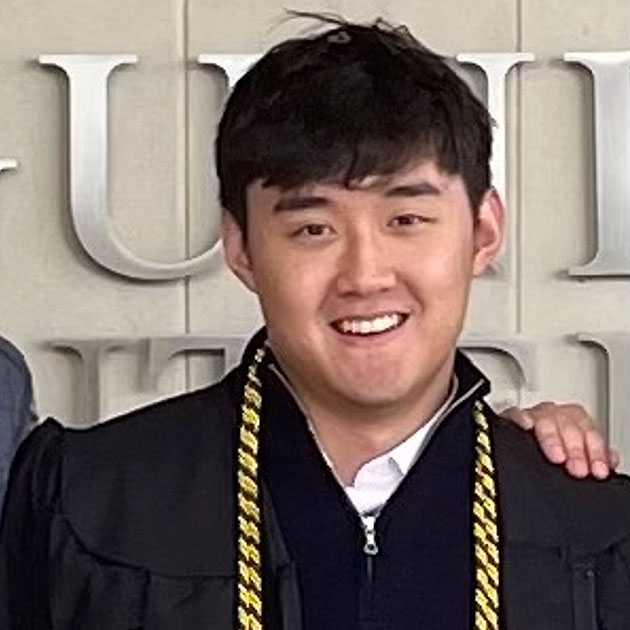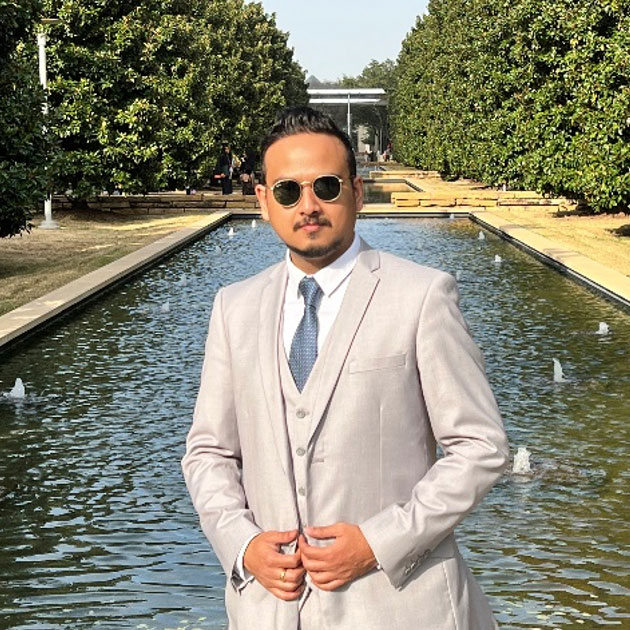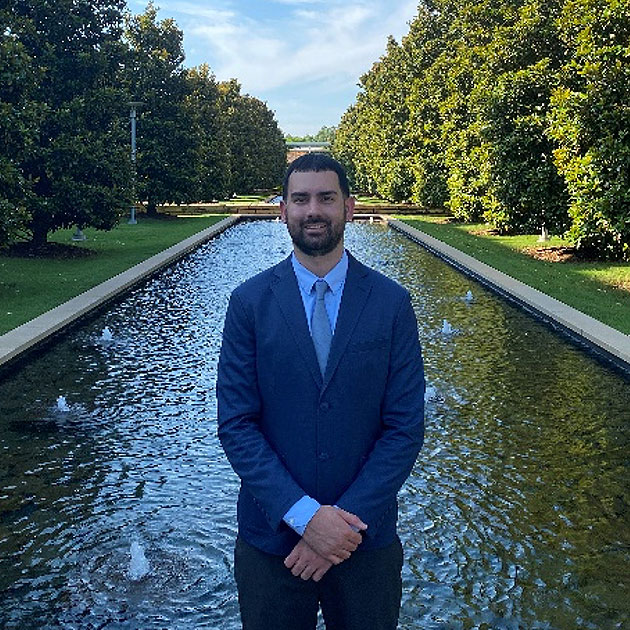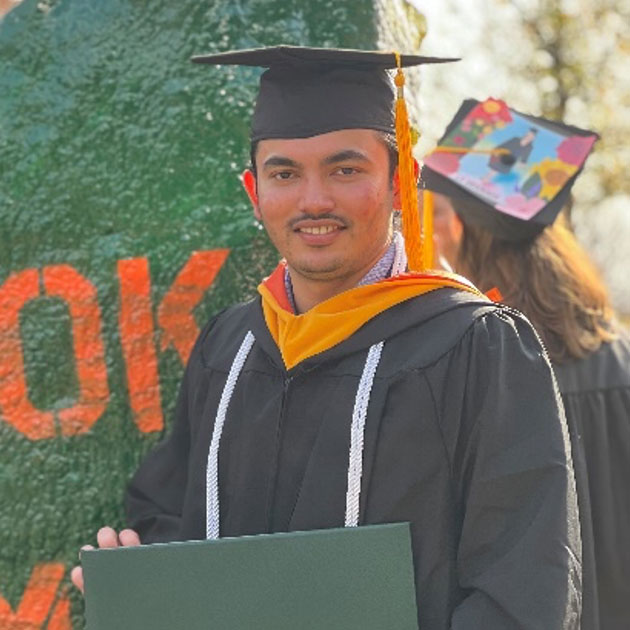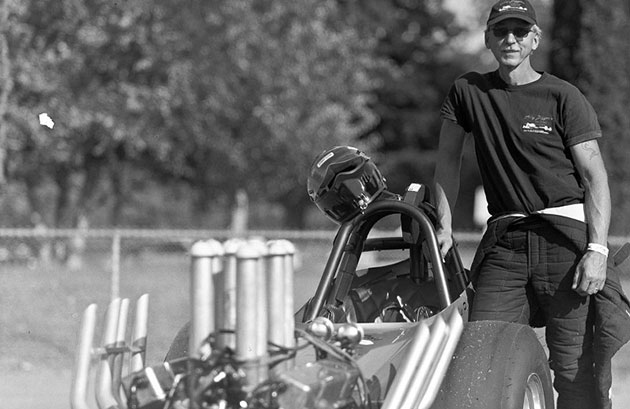
Senior Technical Process / Quality, AT &T, Second Vice President, Toastmasters International
Peck has been with AT&T for more than 30 years where his responsibilities include leading cross-functional teams; project management, overseeing numerous high-tech, multimillion-dollar projects annually (he is also PMP certified); and developing and reviewing project-related business cases, among other responsibilities. Peck is also Robotic Process Automation certified. Much of his free time, however, is spent with Toastmasters International, which, as its core mission helps members become confident public speakers and strengthen their leadership skills.
At Toastmasters International, Peck’s portfolio includes many responsibilities.
Peck has two primary spheres where he operates. In the boardroom, as second vice president, he helps with other leaders in supporting the strategic direction of the organization and participates in financial oversight and budgeting. Along with other board members, he helps determine high-level policy direction and reviews and approves policies, discusses organizational opportunities and determines the organization’s future direction, to name a few core responsibilities. Out of the boardroom, Peck’s duties include visiting districts as an organizational ambassador to share Toastmasters’ message, motivate and support district leadership teams, recognize continued corporate sponsorship and lead corporate and media events. He also meets with members to maintain organizational awareness and achievement and to encourage members to seek board positions and generally serve as a goodwill ambassador for Toastmasters.
What do you enjoy about your work with Toastmasters International?
Toastmasters allows us to see the positive change in individuals on an ongoing basis, from watching a new member attend their first meeting and being reluctant to get up and speak to seeing that same member grow in confidence to deliver an education session to hundreds of members at one time or compete for the World Championship of Public Speaking. Through improved communication we have the ability to break down the barriers between countries and cultures. We change the world one member at a time! You can be a great communicator without being a leader but you cannot be a great leader without being a great communicator. Through Toastmasters, we help individuals develop the skills necessary to be both great communicators and great leaders!
What unexpected experience or event has shaped and/or influenced your current professional life?
In May 2009, I had the most unexpected experience of my life. This experience influenced both my professional and personal life. At the age of 46, I was diagnosed with Stage IV cancer and, at the same time, had just been elected to serve in what I will refer to as my first advanced leadership position in Toastmasters. I was also serving as president of my local Kiwanis Club and working on obtaining my NHRA drag racing license. During this period, I had surgery and was undergoing radiation and chemo treatments. This could have been the most depressing time in my life, but it wasn’t. Why? I had made a commitment to others and I wasn’t going to let this situation prevent me from keeping those commitments … it might slow me down but it wasn’t going to stop me. Through this experience, I learned several things that I continue to use to this day. I learned to ask for help when needed, build teams and trust individuals on those teams, and never give up even when the obstacle seems insurmountable. As Winston Churchill once said, “Never yield to the apparently overwhelming might of the enemy.” Cancer was definitely the enemy and I refused to yield!
Did a UT Dallas professor inspire you? Who was that and how was that person inspirational?
Patricia Hayden, an adjunct faculty member at UT Dallas, inspired me to view the world differently. Although I didn’t realize it at the time, her course on “intercultural savvy” provided me with a vital foundation for understanding how an international organization, such as Toastmasters, operates. The course really opened my eyes and my mind to the world around us. I use the knowledge I gained from that course daily. I use it as a basis to grow my understanding of world cultures. I learned that cultural understanding is a bi-directional process. Not only do I need to understand a culture to know what to expect (them to me); I also need to understand how my culture and behavior is perceived by them (me to them). Only through this can we break through the cultural barriers and bring the world together.
Has something about your UT Dallas education surprised you since graduating?
I attribute much of my success within Toastmasters International to the education I received at UT Dallas. After graduation, I was unsure of how I would use the skills and knowledge I had obtained. When I joined Toastmasters I was surprised at how relevant those skills and knowledge were when applied to a global organization. From understanding international finance to being able to identify and work within the various cultural norms around the world, my education has proven invaluable. To this day, I still have several of my college textbooks in my bookcase.
What advice do you have for college students hoping to succeed professionally?
I offer two key pieces of advice for not only college students but for anyone looking to succeed professionally. First, get a mentor. Identify individuals who have knowledge of and have been successful at what you are trying to achieve. Ask them if they are willing to mentor you and help you on your journey. Have multiple mentors who can help you in various areas. Once you have your mentors, define what the mentor/mentee relationship is so that everyone is of the same mindset. Secondly, never be afraid to ask for help. Individuals have many reasons for not asking for help – from not knowing who to ask, to a false, preconceived notion that asking for help can be a sign of weakness. My mantra is, “Asking for help is not a sign of weakness; it is a sign of wisdom.” Being wise will lead you to success.
What makes an effective leader?
I’m not ashamed to admit that I wasn’t always as effective a leader as I am now. Even now I continue to study leadership to improve the skills I currently have as well as to develop new ones. A couple of important things I have learned along the way are: 1. The difference between listening and hearing. You can listen to someone and never truly hear what they are really saying or asking. This may end up in a misinterpretation of the situation. 2. How others are not always looking for you to solve problems for them; sometimes they are just looking for someone to listen. Also, I also try to consistently follow what I have coined as “The Three B’s of Successful Leadership:” 1. A leader needs to stand BEFORE their team to provide a shared vision, guidance and expectations for the team. 2. A leader needs to stand BEHIND their team to offer support and show they have their team’s back. 3. A leader needs to stand BESIDE their team to show they are willing to stand shoulder-to-shoulder with them.
What do you enjoy doing in your free time?
Drag racing. I am an NHRA licensed drag racer with my own race team. I own and drive a nostalgia front engine dragster.

